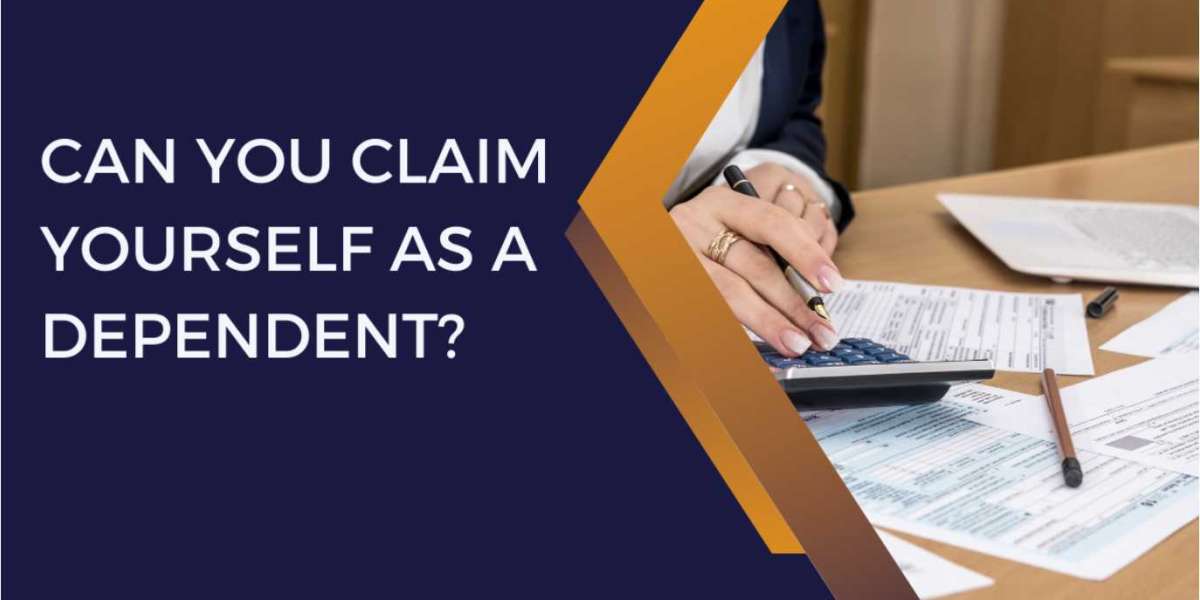Tax season can feel like a maze of forms and rules, and one common question is: Can I claim myself as a dependent? While it sounds appealing who wouldn’t want to reduce their taxes owed? Understanding how "dependents" work in U.S. tax law is essential.
What Is a Dependent?
The IRS defines a dependent as someone other than the taxpayer or their spouse who qualifies for specific tax benefits because the taxpayer supports them financially.
However, you can’t claim yourself as a dependent on your tax return. You can only claim others or be claimed by someone else.
Why Does Claiming a Dependent Matter?
Claiming dependents can unlock valuable tax credits and deductions, which can significantly lower taxes owed. However, not everyone qualifies as a dependent, and the rules can be strict.
Rules for Claiming a Dependent
1. Qualifying Child
To claim a qualifying child, they must meet these conditions:
- Relationship: Be a child, stepchild, foster child, sibling, or descendant.
- Age: Under 19, or under 24 if a full-time student (no age limit if permanently disabled).
- Residency: Lived with the taxpayer for over half the year.
- Support: The taxpayer must provide more than half of their financial support.
- Joint Return: The child can’t file jointly with someone else (unless it's for a refund).
2. Qualifying Relative
For qualifying relatives, the rules include:
- Relationship or Household Member: Must be a relative or live with the taxpayer all year.
- Income Limit: For 2023, their income must be less than $4,700.
- Support: The taxpayer provides over half their support.
- Not a Qualifying Child: They don’t meet the requirements for someone else’s qualifying child.
Personal Exemptions and Recent Tax Changes
Before 2018, personal exemptions allowed taxpayers to deduct amounts for themselves and their dependents. However, the Tax Cuts and Jobs Act (TCJA) eliminated these exemptions for 2018–2025, replacing them with higher standard deductions. It’s unclear if exemptions will return after 2025.
When It’s Beneficial to Be Claimed as a Dependent
There are cases where being claimed as someone else’s dependent can be advantageous:
- Reduced Tax Liability:
The person claiming you can lower their taxable income, which might indirectly benefit you if they provide financial support. - Eligibility for Tax Credits and Deductions:
Dependents can make the claimant eligible for credits such as: - Child Tax Credit: Up to $3,000 per child in 2023.
- Earned Income Tax Credit (EITC): Up to $7,430 for families with three or more children.
- Education Credits: American Opportunity Tax Credit (AOTC) or Lifetime Learning Credit (LLC).
- Education Benefits:
Parents can claim education-related credits or use tax-advantaged 529 plans for qualified expenses if they claim you as a dependent.
Why Understanding Dependency Status Is Important
Your dependency status affects eligibility for credits, deductions, and other benefits. For example:
Case Study:
If you live with your parents and attend college, they might qualify for education tax credits if they claim you as a dependent. However, if their income exceeds $180,000, they may choose not to claim you, letting you claim the education tax credits yourself.
In such cases, communication is key to ensure no one misses out on valuable tax benefits.
Final Takeaway
While you can’t claim yourself as a dependent, understanding dependency rules can help you and your family make informed tax decisions. Need help navigating this? A tax professional can guide you to the best strategy for your situation.








